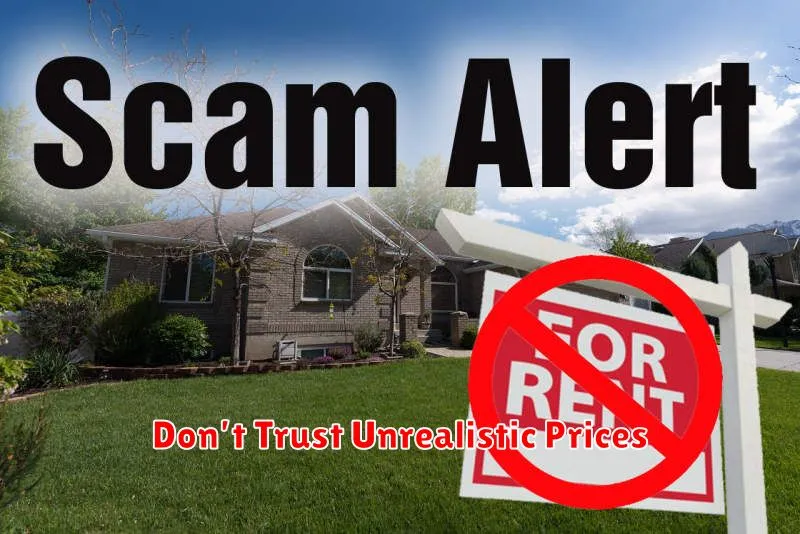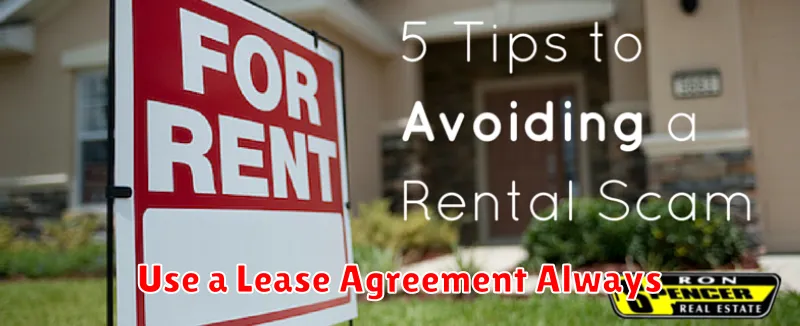Finding the perfect rental property online can be an exciting yet daunting task. Unfortunately, the digital landscape also presents opportunities for rental scams, targeting eager renters. Protecting yourself from these fraudulent schemes is crucial. This article provides essential guidance on how to avoid rental scams online, empowering you to navigate the online rental market safely and securely. Learn to identify red flags, conduct thorough research, and ultimately secure a legitimate rental without falling victim to online fraud.
From fake listings to requesting money upfront, rental scams can take various forms. Understanding common rental scam tactics is the first step in protecting your finances and avoiding the frustration of a fraudulent rental experience. By following the advice outlined in this article, you can confidently search for your next rental, knowing how to identify and avoid the pitfalls of online rental scams and ensuring a smooth and secure rental process.
Never Wire Money in Advance
One of the most important rules to avoid rental scams is to never wire money in advance. Scammers frequently request payments via wire transfer, money orders, or prepaid cards because these methods are difficult to trace and offer little recourse for victims.
Legitimate landlords will typically accept more conventional forms of payment such as checks, cashier’s checks, or online payment platforms with buyer protection. Always be wary if a landlord pressures you to wire money or insists on unusual payment methods.
If a landlord asks for payment before you’ve seen the property in person or signed a lease, consider it a major red flag. Protect yourself by adhering to secure payment practices and refusing to send money to anyone you haven’t met and verified.
Verify Property Ownership
A crucial step in avoiding rental scams is verifying the landlord’s ownership of the property. Never skip this step.
You can typically verify ownership through public records. Contact the local county assessor’s office or check their online database. This will confirm the legal owner and help you avoid dealing with scammers posing as landlords.
If the listed owner doesn’t match the person you’re interacting with, proceed with extreme caution. Demand clarification and supporting documentation. If they are an agent, request proof of their agency relationship with the owner.
Avoid Listings with No Photos
A legitimate rental listing will almost always include multiple photos showcasing the property. Listings with few or no photos should be treated with extreme caution. This is a major red flag that the listing might be fraudulent. Scammers often avoid posting real photos because they don’t have access to the actual property.
If a listing only includes generic photos, stock images, or photos that seem inconsistent with the property description, be very skeptical. Don’t hesitate to ask the landlord or agent for additional photos. A refusal to provide more pictures is another warning sign.
Don’t Trust Unrealistic Prices

One of the most obvious signs of a rental scam is an unbelievably low price. If a property is listed for significantly less than similar properties in the same area, be very cautious. Scammers lure victims in with the promise of a great deal. Do your research. Compare rental rates in the neighborhood to get a realistic idea of what you should expect to pay. If it seems too good to be true, it probably is.
Be wary of listings that pressure you to act quickly due to high demand. Scammers often use this tactic to create a sense of urgency and prevent you from thoroughly investigating the property or landlord. Never feel pressured to send money or sign a lease without conducting proper due diligence.
Use Reputable Listing Platforms
A key strategy to avoiding rental scams is to use well-established and reputable listing platforms. These platforms often have security measures in place to verify listings and protect users. They also provide resources and support in case of disputes or suspected fraud.
Research different platforms and compare their features, fees, and safety protocols. Look for platforms with verified listings, secure payment systems, and clear terms of service.
Never Skip a Physical Visit
A physical visit is essential in verifying the legitimacy of a rental property. Seeing the property firsthand allows you to confirm its condition and compare it to the online listing. This helps avoid scams involving misrepresented or non-existent properties.
During your visit, carefully inspect the property. Note any discrepancies between the online listing and the actual property. Check for any damage or maintenance issues. This is your opportunity to ask the landlord or property manager direct questions about the property and the lease terms.
Meeting the landlord or property manager in person is another key reason to visit. This allows you to assess their credibility and professionalism. A scammer is less likely to agree to an in-person meeting.
Be Cautious with Urgency
Rental scams often employ tactics to create a sense of urgency. Scammers pressure potential renters to act quickly, hoping to bypass their critical thinking. Beware of phrases like “available today only,” “must act fast,” or “other interested parties.” These are red flags suggesting a potential scam.
Legitimate landlords understand the need for due diligence. They will allow ample time for applications, background checks, and property viewings. Don’t be rushed into making a decision. Take your time and thoroughly investigate any rental opportunity that seems too good to be true, or that pressures you to act immediately.
Check for Fake Landlords
Verify the landlord’s identity. Request their full name and contact information. Cross-reference this information with property records if possible. If the property is managed by a company, confirm the landlord’s affiliation with that company. Be wary if they are reluctant to provide this information.
Look for inconsistencies. Scrutinize the listing details. Do the provided contact details, property address, and landlord information align? Discrepancies between advertised information and official records are red flags.
Be cautious of unusual requests. Be suspicious if a landlord asks for payment before a showing or demands unusual forms of payment like wire transfers or gift cards. Legitimate landlords typically require standard payment methods and follow established procedures.
Report Suspicious Listings
If you encounter a listing that appears suspicious, reporting it can help protect others from becoming victims of a rental scam. Report the listing to the platform where you found it. Most online marketplaces have a reporting mechanism, often labeled “report” or “flag.” Provide specific details about what makes the listing suspicious.
Document everything. Save screenshots of the listing, communications with the supposed landlord, and any other relevant information. This documentation can be helpful for platform investigators and law enforcement if necessary.
Consider also reporting the listing to relevant authorities. This may include local law enforcement or consumer protection agencies. Reporting to multiple channels helps increase awareness and potentially prevent the scam from affecting more people.
Use a Lease Agreement Always

A legally binding lease agreement is your primary protection against rental scams and disputes. It outlines the terms of the tenancy, including rent amount, payment schedule, lease duration, and responsibilities of both landlord and tenant.
Never rent a property without a signed lease. This document provides legal recourse if issues arise during your tenancy. It should clearly define all terms and conditions to avoid misunderstandings.
Review the lease thoroughly before signing. If you’re unsure about any clauses, seek legal counsel for clarification. A well-drafted lease agreement protects both parties and establishes a clear understanding of the rental arrangement.

